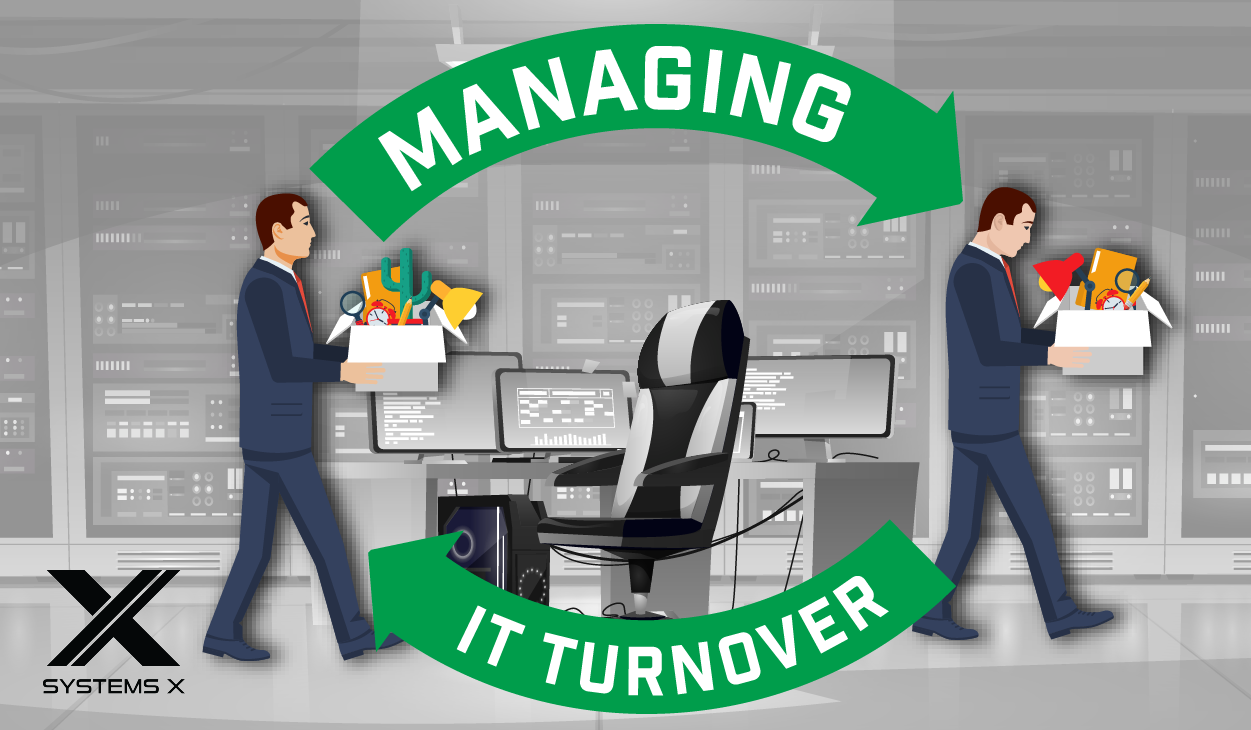3 min read
Are you thinking of outsourcing your IT management?
 Mike Brattain
:
Jul 1, 2022 6:33:00 AM
Mike Brattain
:
Jul 1, 2022 6:33:00 AM

For many businesses, the challenge of managing technology priorities can be menacing. A common approach is to shift some or all of the IT responsibilities to an IT management provider.

The idea behind outsourcing your IT department goes back to the various benefits the business will gain. From reducing costs to facilitating internal processes, there are many advantages to redistributing the IT management of your company.
In this article, we’ll define the many aspects of outsourcing IT management, including what services can be outsourced and why you should consider IT outsourcing.
What Is Outsourcing in Technology Management?
To understand what it is to outsource IT management, we should begin by defining what outsourcing means in the business world.
Outsourcing, in layman's terms, is employing external sources to have them handle affairs that your internal staff would typically perform by themselves. In other words, outsourcing is a management strategy where a business seeks a third party to handle agreed-upon tasks.
By definition then, outsourcing IT management is looking for specialized service providers to carry out IT-centered processes and functions.
These outsourced parties are usually competent technology organizations that’ll govern technological projects, such as IT support, cybersecurity, software development, and solving infrastructure issues.
What IT Services Can Be Outsourced?
If you’ve ever worked in an IT department before, you know how overwhelming it is to be on top of every computer issue and technological update. With only so much time in a day, it becomes almost impossible to finish every pressing task.
This is just one of many reasons why small to medium size businesses are searching for an outside IT partner.
Here are a few important aspects of outsourced IT management.
Related: VENDOR MANAGEMENT TIPS FOR 2022
Maintenance
Employees of the IT department often overlook the task of maintaining equipment and regularly updating the software systems.
By neglecting such duties, the organization's cybersecurity is at risk.
Good IT providers will proactively monitor your network to identify any anomalies that may cause problems down the road. If something looks suspicious, you have a team who will take the steps needed to analyze and make sure it does not affect cyber security or business continuity.
They will also ensure your applications are always up to date and that the latest versions will integrate with your current infrastructure before deployment.
Cyber Security
Cybersecurity is one of the most pressing issues that businesses face on a daily basis. Additionally, it’s not a task that should be carried out by a single person or a team.
In fact, 60% of breaches are a result of an insider threat. That percentage alone should be alarming enough to consider having an MSSP (Managed Security Service Provider) handle your cybersecurity needs.
This type of partner will be impartial and can assist the business in developing strategies that address any loopholes present in the system.
IT Tech Support
Tech support encompasses all menial tasks that occur more commonly in a business environment, such as a computer malfunction or password troubles.
Since such inconveniences happen often, the internal IT department becomes overwhelmed with fixing them daily.
Not only is it cost-efficient to utilize remote IT support, but it’s also less time-consuming for all. Having 24/7 outside tech experts allows your internal resources to focus on future projects.
Other Outsourced IT Services
Since outsourcing IT management is on the rise, more and more businesses are turning to external technology professionals to handle the inner workings of IT-centered services.
Besides the aforementioned tasks, business functions often outsource the following as well:
- Software and hardware development
- Database upgrades and management
- Telecommunications
- Website maintenance and development
- Hosting
- System integration
- Strategy direction
- Infrastructure
- Customer support and service
What Are the Benefits of Outsourcing IT Management?
Immediate benefits can be gained by outsourcing IT services through Managed Services. Next, we cover the main advantages of using an external IT department to manage the bulk of your technology.
Cut Back on Labor Costs
Hiring and training an IT staff can be very expensive, and temporary employees don't always live up to your expectations. Outsourcing lets you focus your human resources where you need them most.
Reduce Risk
Every business investment carries a certain amount of risk. Markets, competition, government regulations, financial conditions, and technologies all change rapidly. Outsourcing providers assume and manage much of this risk for you, with specific industry knowledge. Especially security and compliance issues. They generally are much better at deciding how to avoid risk in their areas of expertise.
Focus on your core business
Businesses have limited resources, and every manager has limited time and attention. Outsourcing can help your business stay focused on your core business and not get distracted by complex IT decisions.
Enhance Digital Transformation
A quality outsourced IT partner will have the resources to start new projects right away. Handling the same project in-house might involve months of hiring the right people, training them, and providing the support they need. For most implementations, quality IT companies will bring years of experience, in the beginning, saving time and money.
Gain a COMPETITIVE edge
Most SMEs can't afford to match the in-house support services that larger enterprise companies maintain. Outsourcing can help smaller companies act "big" by giving them access to similar technology and expertise. An independent third-party managed cost structure and economy of scale can give your company a competitive advantage.
Conclusion
Outsourcing IT management is an effective business practice that many companies are either implementing or considering. The important thing is that you pick the right IT partner that’ll improve your business’ performance.
Is it time to leverage IT managed services at your organization? How much of your IT staff's time could you free up?
Systems X is here to help! Get started on the road to meeting your technology goals by contacting us today!

Managing IT Turnover: How MSPs Can Keep Your Business Running Smoothly
IT administrators manage everything from network infrastructure to cybersecurity, ensuring that your company’s technological framework is robust and...

What Is a Managed Service Provider (MSP) and What Do They Do?
“What does MSP stand for?” While many business owners are probably familiar with the term by now, for those who may not know, MSP is an acronym for “...

.png?width=908&name=blog%20blurb%20dt%20(1).png)
